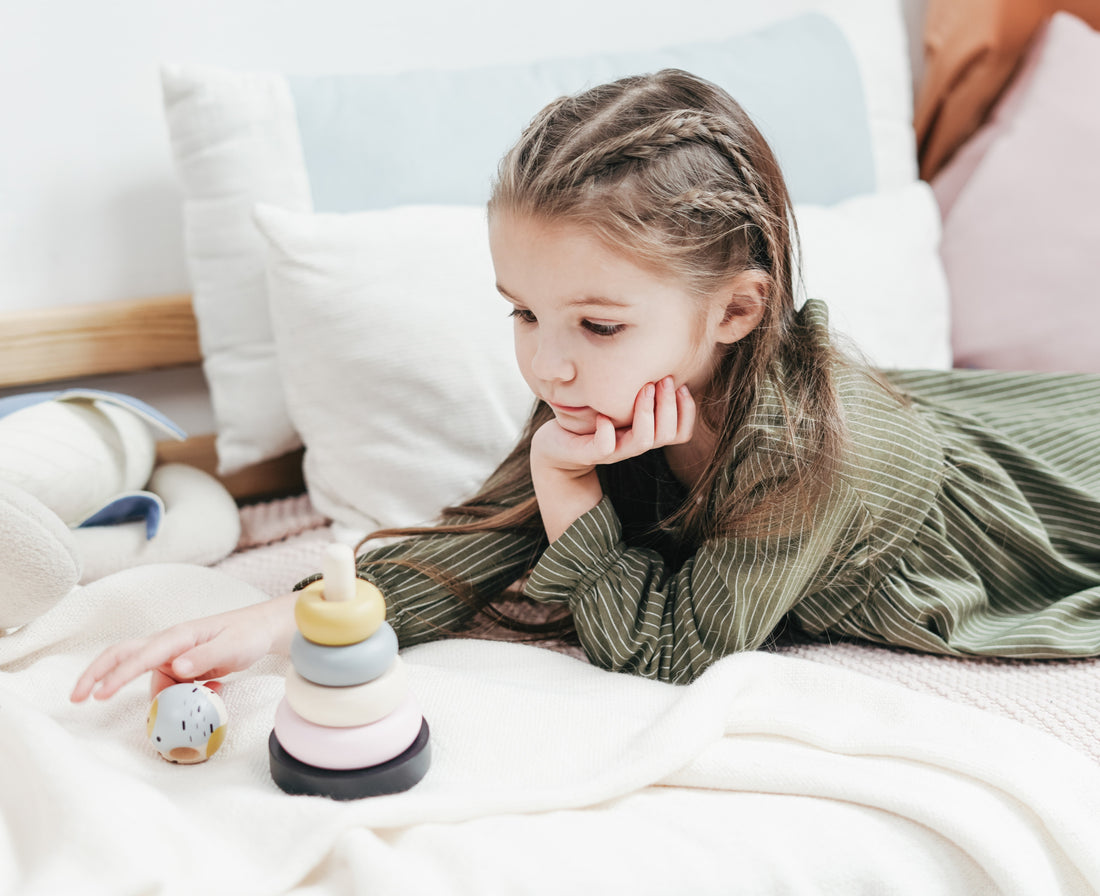We're all aware of the need to make more environmentally friendly choices. While wooden toys made from sustainable sources seem to be better for the environment than plastic toys, they can also improve your child's social, creative, and problem-solving abilities. Every parent should make a conscious decision about the toys and materials they expose their children to.
Why wooden toys are better?
Language Development
Sensory play allows children to experiment with and learn new ways of talking about the world. It promotes their language development and encourages them to effectively communicate with others while playing. When combined with the wholesome and minimalistic qualities of wooden toys, which allow versatility and trigger the imagination, the child is inspired to express the colourful new emotions they experience and the many new ideas that come to their minds.
Improvement in Senses
Touching, sensing the surface, shape, volume, and weight of wooden toys develops complex neurological connections in the child's brain and improves memory. Children who explore the world through touch become adept at recognising key elements and attributes of the world, such as hot or cold, sticky or rough, wet or dry, soft or rigid. Wood can heat up and achieve warmth, as well as a mild natural odour. This is especially important for young children, who discover and explore the world not only through touch and sight, but also through smell and putting things in their mouths, so wooden toys can become a truly organic extension of play, gratifying the young curious mind and satisfying their senses.
Stress Busters
A wooden toy is very soothing and appealing not only to the child's sense of touch, but also to the child's sense of sight. According to studies, wooden toys provide children with a more peaceful and beneficial quality of play than any other material. Exploring and playing with organic-material toys allows children to slow down and investigate the qualities and possibilities of play. When compared to the minimalistic, wholesome, and non-intrusive nature of wooden toys, plastic, clangy, and bright toys can overstimulate, stress, and exhaust the child. As a result, the child is quietly and deeply immersed in quality imaginative play.
Logical / Cognitive Growth
By now we have established that sensory play strengthens the nervous system and brain pathways, enhancing the child's ability to perform complex learning tasks. Wooden toys help a child's cognitive development by improving their thought process, reasoning, and logic. Children learn to make logical conclusions and develop an understanding of the physical attributes and rules of weight, dynamics, geometry, and volume by grabbing and lifting, balancing and stacking, merging and categorising wooden blocks and toys.
Educational Companion
Today, wooden toys are made in accordance with child learning and development research and methodologies, based on the principles developed by legendary child psychologists, scientists, and educators such as Montessori, Steiner, and Dewey. Wooden toys are intended to help children learn about shapes, sizes, colours, and textures at a young age, as well as to develop logical thinking, cause-and-effect, organisational, problem-solving, and decision-making skills, among other things.
Improves the imagination power.
Children, as masters of their imagination, can transform a simple wooden peg into a horse galloping across mountains, stack blocks into houses or magical castles in powerful kingdoms, design entire towns, create intricate stories, and embark on adventures. Wooden toys, with their simple yet versatile design, provide enough space for children's wild imaginations to run wild. This, in turn, fosters creativity, knowledge, and optimism in children.
Refined Motor skills
Wooden toys are obviously important for the development of fine motor skills, which are the coordination of small muscles and the synchronisation of hands and fingers with the eyes. Pinching, lifting, and balancing wooden toy pieces exercise the nervous system and develop brain areas responsible for dexterity and coordination. In short, playing with wooden blocks prepares the child for more complex tasks such as holding a pencil and tracing and other complex coordinated movements later in life.
Develops social wisdom and co-operation.
Wooden toys encourage children to interact and collaborate effectively, which is an important part of their development. Playing with wooden building blocks with a friend, for example, encourages them to share their ideas, form new relationships, learn to listen and understand, and develop empathy.
Increase IQ level!
Wooden and development toys boost your child's IQ by improving memory, interaction, and reading and writing skills. Toys and games help children learn and challenge their minds. For example, when a child stack blocks but fails to hit the target. He sees them fall to the ground and considers how to do it correctly the next time.

